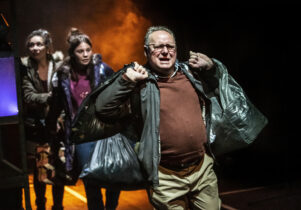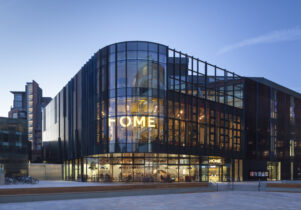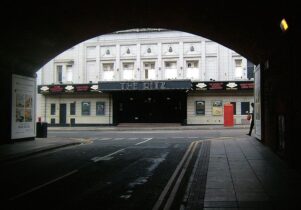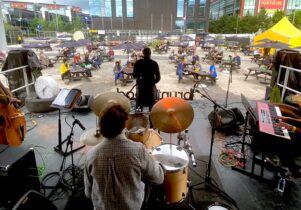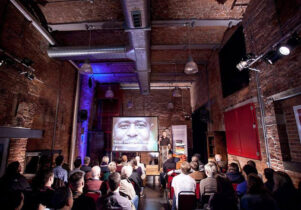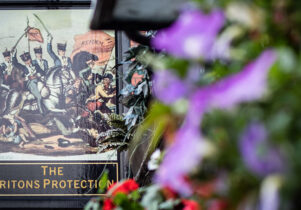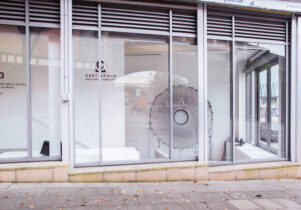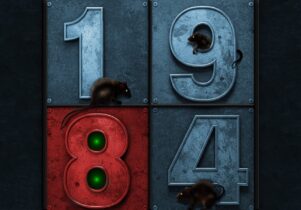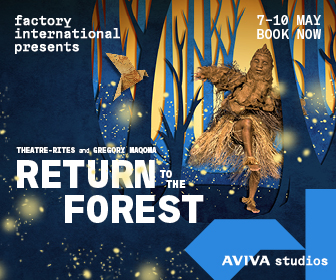It Don’t Worry Me at HOME
Kristy Stott, Theatre EditorBook now
It Don’t Worry Me
Always double check opening hours with the venue before making a special visit.
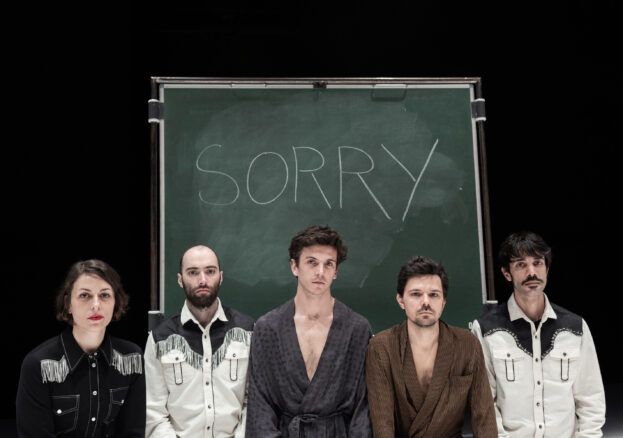
Created and performed by Spanish Catalan company Atresbandes and duo Bertrand Lesca & Nasi Voutsas, It Don’t Worry Me is a gloriously ridiculous contemporary theatre piece exploring the tensions between art, political correctness and what we deem to be offensive.
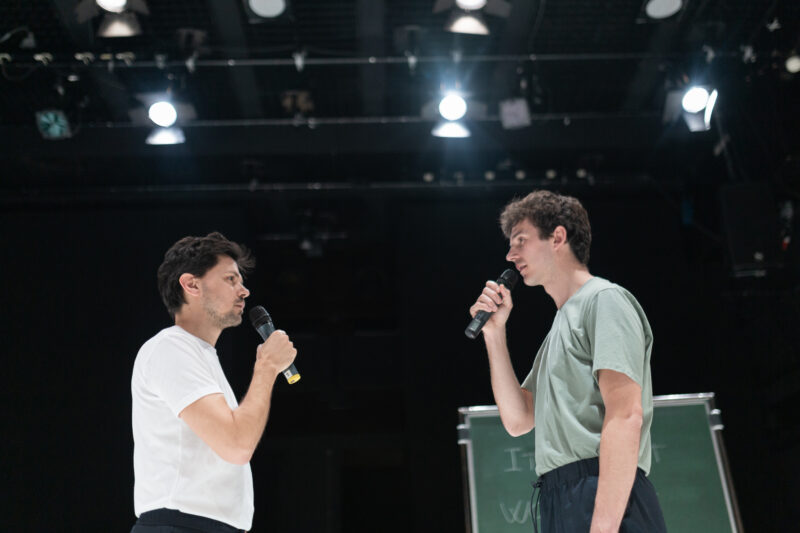
The performance is structured around the life of the fictitious artist Patrick C Watson, with each scene in the work framed as a new room in the imaginary museum of Watson’s work. Challenging conventional theatrical form, the piece offers an amusing commentary on the aesthetics of theatre and its function as a catalyst of social change.
The piece offers an amusing commentary on the aesthetics of theatre.
The audience are positioned as watching a supposedly ‘empty space’ while two performers use microphones to offer a live commentary on what they are doing, as they do it. Stripping the theatrical performance right down, ‘the commentators’ soon become ‘the commented on’. And as theories and visual associations begin to dominate everything, the show spirals out of control. Meanwhile, three audience members, dressed in the style of Robert Altman’s film Nashville (1975) have turned up expecting to see something completely different…
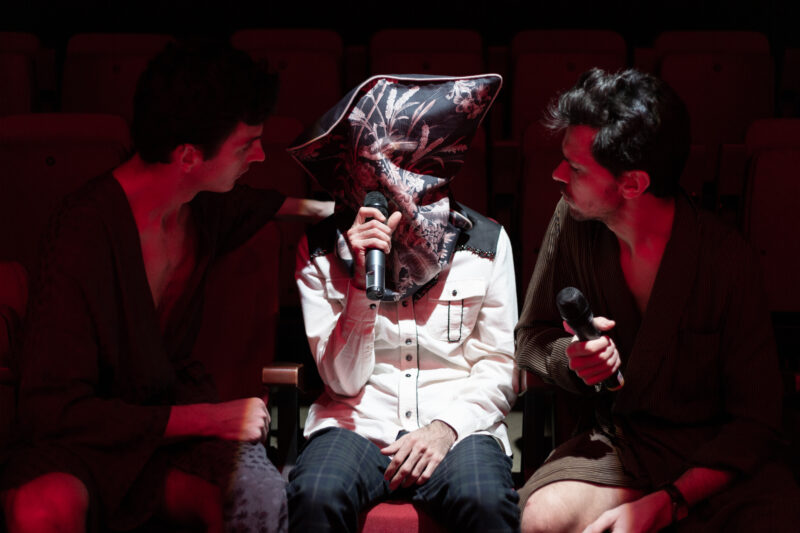
A gloriously ridiculous contemporary theatre piece exploring the tensions between art, political correctness.
It Don’t Worry Me is the first international collaboration between Atresbandes, Bertrand Lesca and Nasi Voutsas. Founded in Barcelona in 2008, Atresbandes are a theatre company with a reputation for devising sharp and perceptive contemporary performance. Although influenced by a variety of disciplines, their work is always underpinned by the process of creation as a way of interrogating the world. Recipients of the Forced Entertainment Award in 2020, Bertrand and Nasi are two performance makers that have been working together since 2015. Creating dynamic performance that sits somewhere between live art and theatre, their previous work has explored complex political and social questions, often interrogating their role, and the audience, as ‘active’ spectators in global conflicts.





























